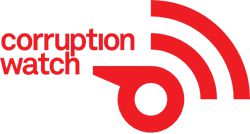Some Agrizzi evidence flawed, but Zondo finds it largely credible

Zondo notes in the third instalment of his report, released on Tuesday, 1 March 2022, that although Agrizzi’s testimony did not respond to allegations raised in the public protector report that gave rise to the establishment of the commission, it nevertheless helped the commission uncover evidence relating to corruption on a grand scale.
High profile names
Agrizzi named a number of high-profile people in his evidence, including politicians and past and current government officials, and even accused former president Jacob Zuma of receiving monthly cash bribes from Bosasa, all in the name of Zuma’s foundation. Agrizzi also said Bosasa did favours for the ANC in return for the party’s influence in securing contracts.
“Bosasa’s primary mechanism of attempting to influence public office bearers was the payment of cash bribes. The amounts paid tended to be commensurate with the degree of influence that could be exercised by the official concerned,” Zondo concludes in the report.
“The attempts at influence through inducement or gain were not confined to cash payments. Bosasa also built houses, provided various furnishings for homes, installed several home security systems, purchased motor vehicles, bought gifts (from premium luxury gifts such as pens and jewellery to food and grocery items) and paid for travel and accommodation.”
He added that through its wide-ranging network of public officials under its influence, Bosasa managed to buy loyalty as it was largely invested in growing its business through state contracts.
Denial
Kevin Wakeford is a close associate of Bosasa and friend to its late former CEO Gavin Watson. He was one of the first implicated parties to refute claims made by Agrizzi over the nature of his relationship with Bosasa while also consulting for government.
Wakeford denied Agrizzi’s claims that Bosasa paid him to influence the Department of Home Affairs (DHA) regarding terms of the extensions for the company’s contract at the Lindela repatriation centre in Krugersdorp. The commission found discrepancies in evidence presented on this matter.
“Mr Agrizzi testified that ‘more favourable terms’ were included in the extended Lindela contract for Bosasa. He testified that Mr Wakeford explained these terms to him which included making it ‘more feasible’ for contract price increases.
“However, in his evidence before the 417 enquiry in the liquidation of African Global Operations [formerly Bosasa], he conceded that the renegotiation of the Lindela contract was aimed at introducing cost savings for the DHA. He later revised his position to explain that the ‘more favourable contract terms’ he claimed had been negotiated for Bosasa lay in the five-year extension and avoiding a tender process.”
Another discrepancy involving Agrizzi’s accusation of Wakeford involved the claim that the latter facilitated a negotiated favour between senior Sars official George Papadakis and Bosasa, in order for Papadakis to avert investigation into the company by the revenue service. In return for this, Bosasa would pay for a large consignment of cement as Papadakis was in the process of renovating his home. Bosasa was to source cement despite it being scarcely available at the time (around 2009) due to the demand necessitated by large infrastructure projects ahead of the 2010 Soccer World Cup.
“Mr Agrizzi could not provide detail on which ‘major Sars investigation’ Mr Wakeford approached Mr Watson about, nor could he recall which of the ‘big companies’ was under investigation.
“When asked to comment on the specific amounts paid by Bosasa to RTC, a cement supplier, Mr Agrizzi did not deal with the details put to him, and instead stood by a generalised statement that cement, paid for by Bosasa, was delivered to Mr Papadakis as gratification,” Zondo notes in the report.
“In this regard I have to bear in mind that he was sick when he gave evidence and was cross-examined by Mr Wakeford’s counsel. His health condition was such that it would have been understandable if he had asked for a postponement of his cross-examination but he did not.”
Less convincing
Zondo further notes that Agrizzi’s evidence was even less convincing when he tried to “portray a less corrupt version of himself,” notably in relation to his evidence that he grew tired of the cash bribes scheme and no longer wanted to know the amounts involved. “At one point, Mr Agrizzi claimed that, despite being Group COO, ‘my influence [in Bosasa] is very limited, in actual fact’.”
Zondo, however, was not blind to Agrizzi’s role in the corruption and in putting it in the public domain: “His motives in revealing the extensive corruption to which he testified may have been mixed ones, rather than exclusively public-spirited ones. The disclosures followed a breakdown in relations between him and Mr Watson and, if he could somehow avoid prosecution, might have advanced his own business ambitions.”
Despite these observations, said Zondo, the evidence before him was largely credible.
This article was originally published on Corruption Watch.
Source: Corruption Watch

Corruption Watch (CW) is a non-profit organisation launched in January 2012, and operates as an independent civil society organisation with no political or business alignment. CW is an accredited Transparency International chapter that fights against the abuse of public funds, relying on the public to report corruption. These reports are an important source of information to fight corruption and hold leaders accountable for their actions.
Go to: www.corruptionwatch.org.za
























